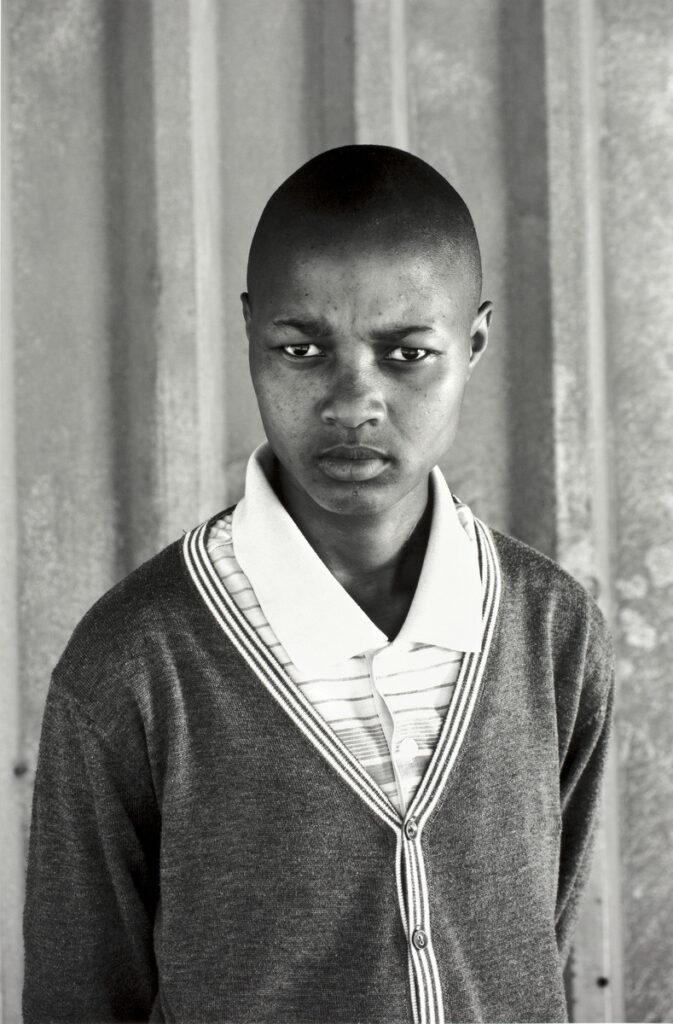Not On View
Muholi, Zanele
South African (1972- )
Place made: Africa; South Africa
Lumka Stemela, Nyanga East, Cape Town, from the series Faces & Phases, 2011
Sheet: 35 3/4 in x 24 13/16 in; 90.8 cm x 63 cm; Image: 30 in x 19 3/4 in; 76.2 cm x 50.2 cm
Purchase with the Madeleine Pinsof Plonsker (Class of 1962) Fund
MH 2014.6.1

 GIVE
GIVE